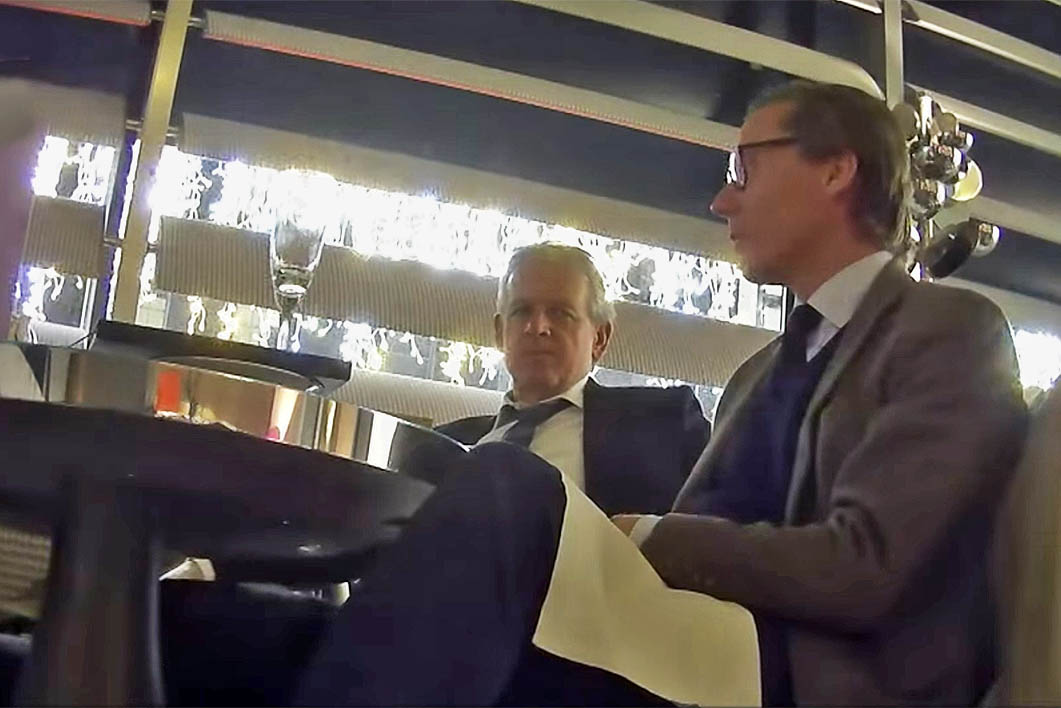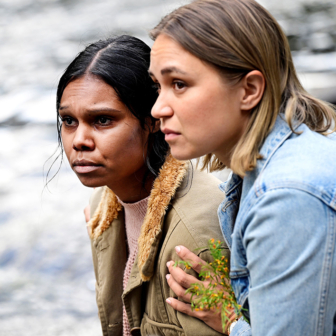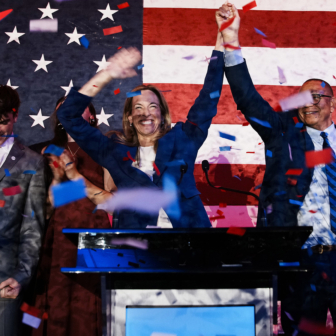In spite of the cuts that have reduced the ABC’s factual programming output by 60 per cent since mid 2014, Four Corners continues to screen state-of-the-art investigative journalism. “Mongrel Bunch of Bastards,” last week’s joint Fairfax/Four Corners exposé of the extraordinary powers of the Tax Office, was a prime example. Reporter Adele Ferguson, a multiple Walkley and Quill award-winner, seems undeterred by an environment increasingly hostile to whistleblowers and the journalists who take up their stories.
This week’s program, “Democracy, Data and Dirty Tricks,” was a collaborative venture from Britain’s Independent Television News and Channel 4. Their combined resources enabled an ambitious and multifaceted approach to a subject of the greatest international importance. The episode shown on Monday night focused on the involvement of Cambridge Analytica in the last Kenyan election and, more famously, in Donald Trump’s presidential campaign of 2016. This was the first of a two-part British investigation; the ABC has yet to announce whether it will air the second, which covers elections in Mexico and the Brexit campaign in Britain.
Cambridge Analytica is in the business of trying to manage voters’ perceptions in order to influence the results of elections. It does this by mining personal data on social media, purportedly to create intricate profiles of individual voters. All this is well known from the almost daily rollout of news coverage and analysis. We’ve seen clips of whistleblower Chris Wylie, a former director of research for the company, giving evidence to the British parliament, and of Mark Zuckerberg testifying to Congress about Facebook’s involvement.
Investigative journalists have been following the story since the vice-president of Cambridge Analytica, Steve Bannon, backed by hedge-fund billionaire Robert Mercer, became involved in Donald Trump’s presidential campaign. Notable among the print media sleuths has been Carole Cadwalladr, and there is not much in this documentary that has not been covered in her articles for the Guardian.
But this is a story about the impact of media on human intelligence, and television provides opportunities to intensify the impact of the story itself. Viewers can follow extended and interconnected lines of narrative that move backwards and forwards in time. On camera, the players can be read through their expressions and mannerisms, their calculated modes of self-presentation made transparent by the framework of commentary.
Wylie, with his pink hair, outsized spectacles and shirt bearing the word Warszawa (Warsaw), is filmed sitting on the pavement next to a mural. He is interviewed in a half-finished building with a ladder leaning against the wall behind him. Is he trying to assume the persona of a dissident who has left the corporate world for bohemia? The affectation doesn’t help his credibility as a witness.
Interviewer Andy Davies adopts a sceptical approach, listening with his arms folded as he pursues an adversarial line of questioning. “You were at the heart of it,” he says. “Why are you speaking out now?” He mentions a legal dispute between Wylie and his former employers; no doubt there are scores to be settled? Wylie’s response is straight out of the PR playbook. He tells us he feels tainted by the political order he thinks he helped to create. “Some people would say it was rank hypocrisy,” Davies responds.
There’s no convincing answer to that charge, but when it comes to relaying the details of Cambridge Analytica’s practices, Wylie is back on form with a well-honed repertoire of images and phrases. There’s “a dangerous alchemy to CA’s art,” he says. The information you put out on social media is run through an app that learns who you are. Then it crawls through your social networks and harvests data from all your friends. “If you have curated your entire self online, and I have captured that…” Then what?
As Wylie warms to his narrative, it sounds more and more like a case for Harry Potter. This kind of language is supposed to make us paranoid, of course, and paranoia is ultimately the product Cambridge Analytica has to sell. It’s not hard to generate, and it is all too easy to market if you’re willing to trade in what is effectively the cultural equivalent of a nerve agent. Paranoia, with the discourse of hate in which it is couched, is the primary ingredient of all forms of propaganda.
And isn’t that what this business is fundamentally about? As I watched the unfolding dialogues, I found myself wondering if this hyper-sophisticated new media “product” that has sent us running away in droves from the happy playground of our Facebook pages is no more than bog-standard propaganda of the kind that’s churned out daily on the front pages of the right-wing tabloids and in the studios of Fox News.
The data-gathering itself may be a sophisticated exercise, at least from a technical point of view. Cambridge Analytica drew on the expertise of a researcher in psychometrics at Cambridge University, who helped to create the source codes for the online personality tests posted on social media. Alexander Nix, CEO of the company, is shown giving a presentation in which he outlines the sociological aspects of what he calls a “psychographic” methodology. On the screen behind him, pictures appear of random human subjects about to have their souls sucked into the all-seeing apps that are the ultimate political weapons of the information age.
Clearly, the editorial line of the program is that we should be afraid, very afraid. But television communicates through what you see, rather than what you are told. And what anyone with half a brain might see here is a second-rate salesman peddling a product that works about as well as the mechanised rapid-feeding system in Charlie Chaplin’s Modern Times. Most tests based on multiple-choice options have the target accuracy of the corncob spinner that sprays kernels all over Chaplin’s tray.
“Psychographics” may be no more than a marketing ploy designed to lend mystique to a pretty ordinary exercise in demographic analysis. Where Cambridge Analytica has added to the conventional approach is in its capacity to map an electorate so that messages can be targeted with greater precision to the groups most likely to be susceptible to them.
This is not to say that Cambridge Analytica’s activities aren’t dangerous. But the question of how it wrought such damage on democratic processes is not one to be answered according to its own spin.
For me, though, the most fascinating — and impressive — aspect of this documentary is the undercover work by a Channel 4 reporter posing as a member of a wealthy Sri Lankan family interested in getting its preferred candidate up at the next election. Speaking in heavily accented English, he asks a succession of naive questions. It’s the prefect strategy: no doubt influenced by some unacknowledged racism, his interlocutors seem to see him as easily taken for a ride, which makes them all the more easily deceived themselves.
In a succession of meetings held at London hotels, Nix and the manager of his “political division,” Mark Turnbull, are off-guard and urbane. After impressing the prospective client with a brief homily about “the two fundamental human drivers — hope and fear,” they begin to spell out some tactics that are in a very different league from those described in their corporate presentations.
First, they explain, it’s about getting useful information on rival candidates. Cambridge Analytica has partnerships with organisations that do that kind of thing, organisations that employ former MI5 operatives. And then there is the sting: you invite them to a lunch, lure them with a dodgy deal, and get it on video. Another option is the honey trap. Tempt them with some gorgeous girls. “Not Sri Lankan girls?” the client asks anxiously. No, no, they assure him. Ukrainians. The company can arrange this kind of thing. They work with fake IDs, set up websites… All part of the service.
This sequence of interviews is a genuine coup. Here they are, falling victim to the very strategies they are describing. If you are in the business of studying human psychology, you might be aware that those most easily manipulated are often people who like to manipulate others. (Facebook thinks I’m twenty-one, a minor but effective deception I adopted in order to avoid ads for Botox.) Assuming the world is full of dupes and suckers, they see everything in terms of the scenarios they have created, and reality can creep up behind them.
Though that’s not always what happens. Cambridge Analytica might well have got away with its shady dealings if it were not for the world of investigative journalism and the whistleblowers who are able to access it. We still don’t know how the consequences of the exposure will play out. Will there be a replay of the Brexit referendum, following the revelations of how Cambridge Analytica bent the campaign rules? Will Facebook survive its loss of face?
The biggest question is whether the outing of this kind of electoral manipulation will have any impact on the way elections are run. Somehow that seems doubtful. If vicious propaganda material can get mass circulation, democracy will continue to be at risk of sabotage. Its best defence is reliable news media, vigilant in resisting pressure and resourced for genuine and fearless investigation. Here, there are forces steadily eroding the ABC’s mettle, and people in power who’d like to see it cave in altogether. ●




